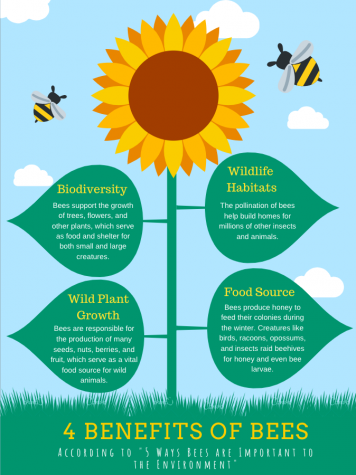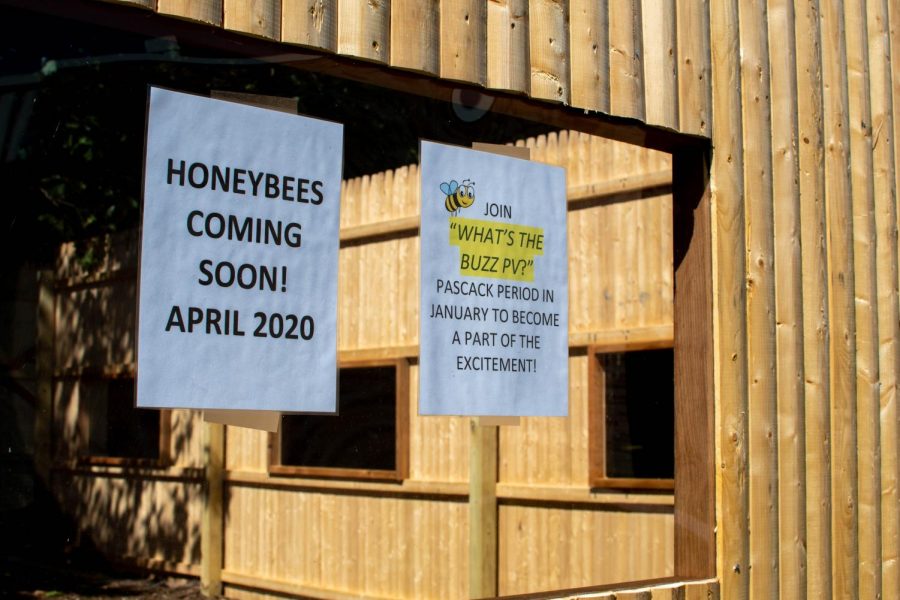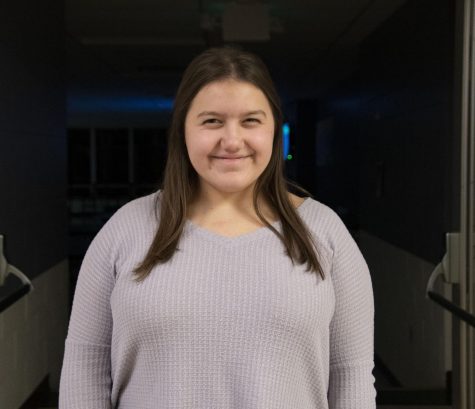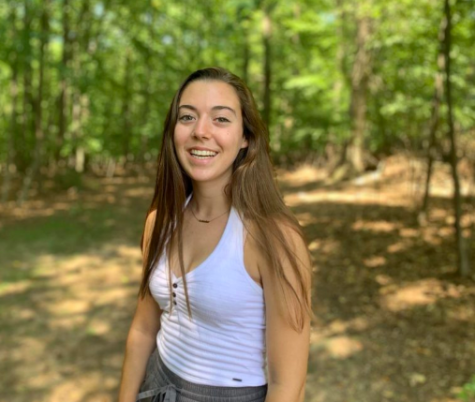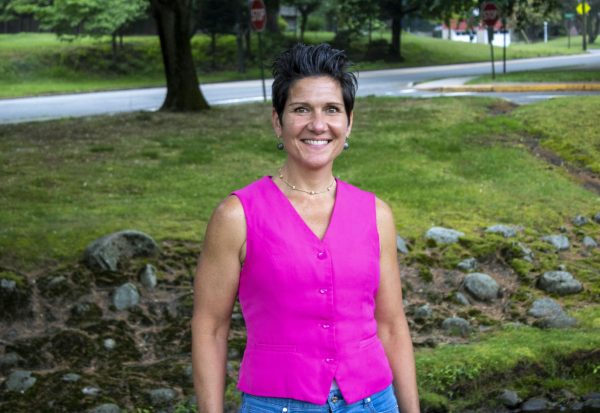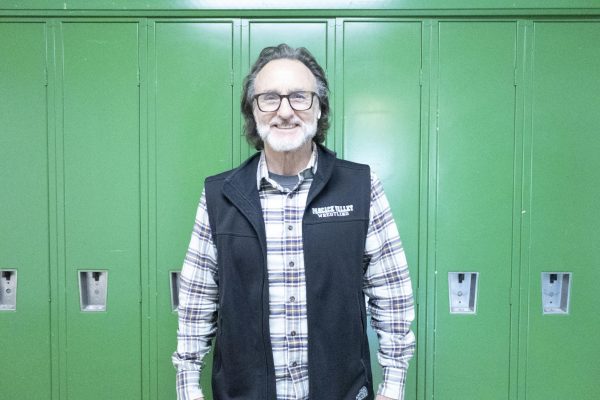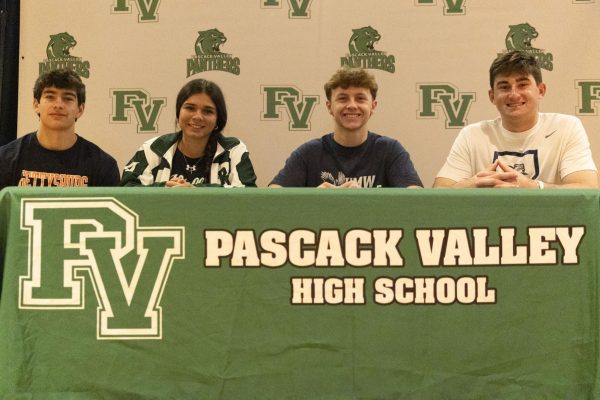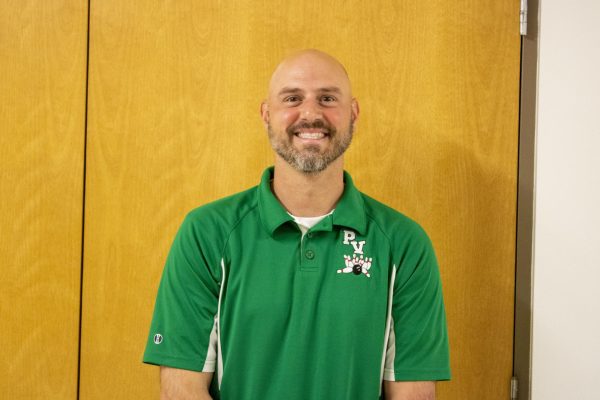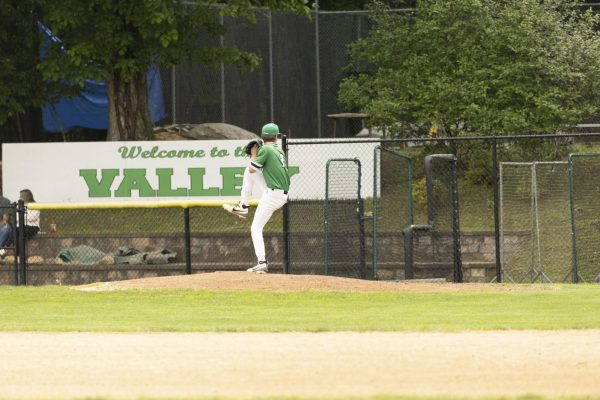The buzz around campus
PV becomes first New Jersey high school to implement beekeeping program
Pascack Valley will become the first high school in New Jersey to have a beekeeping program on campus after a beekeeping enclosure completed construction on Aug. 28. The bees will not arrive on campus until April of this school year.
Editor’s Note: There will be a follow-up story in April of this school year when the bees arrive on campus. This story will highlight the responses of the PV community to the new bee campus.
Fascinated by her backyard beekeeping parents, Kristen Lindstrom was inspired to create the first New Jersey high school beekeeping program at Pascack Valley. The passion that her parents conveyed while interacting with their bees influenced her to bring that same excitement to PV.
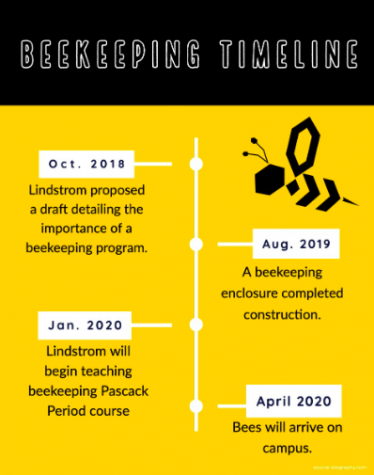
“I had an idea to bring a beekeeping program to the school because both of my parents are backyard beekeepers,” said Lindstrom, PV biology teacher and advisor of the Environmental Club. “I’ve been over while they were working with them, and their enthusiasm for what they were doing was really apparent.”
The beekeeping enclosure was constructed behind the math and science wing of PV on Aug 28. However, the bees will arrive on campus in April of this school year.
“As a biology teacher, I know that it’s important to learn about pollinators and the environment,” Lindstrom said. ‘The beekeeping program connects to some interests I have with the environment.”
Lindstrom proposed a draft detailing the value of PV becoming a bee campus in October of 2018. Her proposal highlighted the importance of a beekeeping program, predictions of ways the program could benefit the community, and the estimated cost. She then reached out to Aarti Mallya, the supervisor of science and technology education in the Pascack Valley Regional High School District, to see what steps were needed to get her idea approved by the district.
“What I think is so powerful about having an opportunity like this is just seeing Ms. Lindstrom’s passion, knowledge, and education about this,” Mallya said. “It is something that can be used to empower the students and get them excited about science, learning, and real-life environmental issues.”
Once the draft was outlined, Mallya and Lindstrom conducted a meeting with PV Principal Tom DeMaio, PVRHSD Superintendent Eric Gunderson, Director of Facilities and Capital Improvements Robert Donahue, President of Northeast NJ Beekeeping Association Frank Mortimer, and PV nurse Diane Fallon. The team all approved the construction of an enclosure and assisted Lindstrom in researching the practicality of PV becoming a bee campus.
“Ms. Lindstrom did a great job teaching us about what [a beekeeping program] would entail and misconceptions about having bees,” DeMaio said. “We did some more research and got into contact with schools that had similar programs. It will be a great educational tool for us to understand what honey bees actually do and how important they are to our environment and our ecology system. We can look at it from the science aspect, but we can also look at it from the economic and business end.”
The beekeeping program will be offered as a Pascack Period course during the spring semester of 2020. Lindstrom will be teaching safety, biology, and ecology regarding beekeeping to students interested in the program starting in January.
“With the classes, I also see this as an opportunity to go out and observe the hives, so I had the contractor build observational windows,” Lindstrom said. “We can’t have all of our student body going out into the enclosure, so we really have to be careful about training properly and screening for allergies.”
Lindstrom said that students who want to enter directly inside the enclosure will be required to wear a full protective suit which includes gloves and headgear. In order to ensure the safety of PV students and the bees, the enclosure will be under video surveillance.
“I think [the beekeeping program] will give students a better understanding of bees and show them just how social they really are,” said Donahue, who drew the initial sketch of the enclosure and has been a backyard beekeeper for seven years. “They’re amazing creatures, and we need them to pollinate farms, produce honey, produce beeswax, and to produce propolis. You can also harvest the pollen they collect for allergies.”
The bee campus has already sparked the interest of PV sophomore Faith Macchione who hopes to bring awareness to the effect of bees on communities for her Girl Scouts Gold Award.
“I’m still in the works of what I want to do with my award, but I really want to try to help the community and help the bees because I know that the [bee population] is starting to go down,” Macchione said. “I want to get involved with the bee program and help out in any way I can because I feel like it could create a really great learning environment for a lot of people.”
The district hopes to involve the student body with the beekeeping program by having the business classes market and sell the honey produced by the bees in order to fund the program. The district also hopes to get classes, such as molecular genetics, study the ecology of the bees, engineering to construct the hives, and videography classes to create a live video stream of the bees inside the enclosure.
“I would love to see a full class of people sign up for the Pascack Period course who are interested in learning alongside me,” Lindstrom said. “Every single person, student or faculty member, have kind of lit up when they talk about what could be done with bees, so their excitement excites me.”
